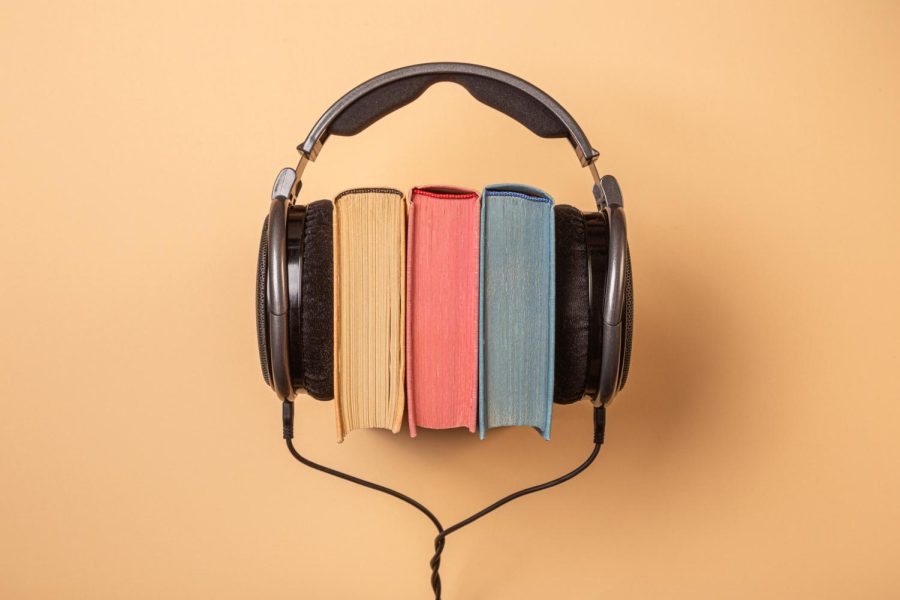Audiobooks can’t compare to physical copy
While audiobooks can be nice, they take away from the full experience of sitting down to relax with a nice book.
April 6, 2022
Imagine a cloud-covered sky, a steady rain, and your warm bed. You reach over, picking up your favorite novel. The spine is worn from continuous use, but you can still remember the new book smell it had when you first held it. The feeling of holding a physical book, paper or hardback, is incomparable to its audio.
Audiobooks are great in their own right. They can be extremely helpful when you might not be able to read, or stopping to pick up a book might be inconvenient.
English professor Daniel Libman does not shy away from a good book, one of his favorites being Herman Melville’s “Moby-Dick.” It is his personal preference to read the physical copy of the novel, but since he has already read the famous story multiple times, he is more inclined to listen to the audio version.
“It lends itself to a performance and the narrator of the audio does a great job conveying it through the voices,” Libman said of “Moby-Dick.”
Even though audiobooks can be the easier option, they don’t always benefit the reader/listener as well as we might hope. Comprehension is exceedingly important, especially to students, but when listening to an audiobook it can be harder to remember what you just heard.
“I listen to audiobooks while I’m driving, but sometimes I find that I can’t really remember the drive or facts that happened… There are a lot of physical cues that you get when reading a book that you don’t get with an audiobook,” said Libman.
When you set aside the time to read a paper book, you have to physically hold it, turn the pages, and read the words, all of which require you to forget about everything else around you and simply give your attention to the words on the page. It is an experience like no other that you can’t get with an audiobook.
When it comes to the classroom, Professor Libman recommends reading the paper copy of a book, then listening to the audio, especially if it is a difficult subject. “I would recommend both, they really enhance each other. You are sort of engaging two different parts of your brain,” said Libman.
The act of stepping foot into a book store surrounded by stories waiting to be read is incomparable to the audiobook store connecting your headphones. Don’t let the physical books go out of style.













